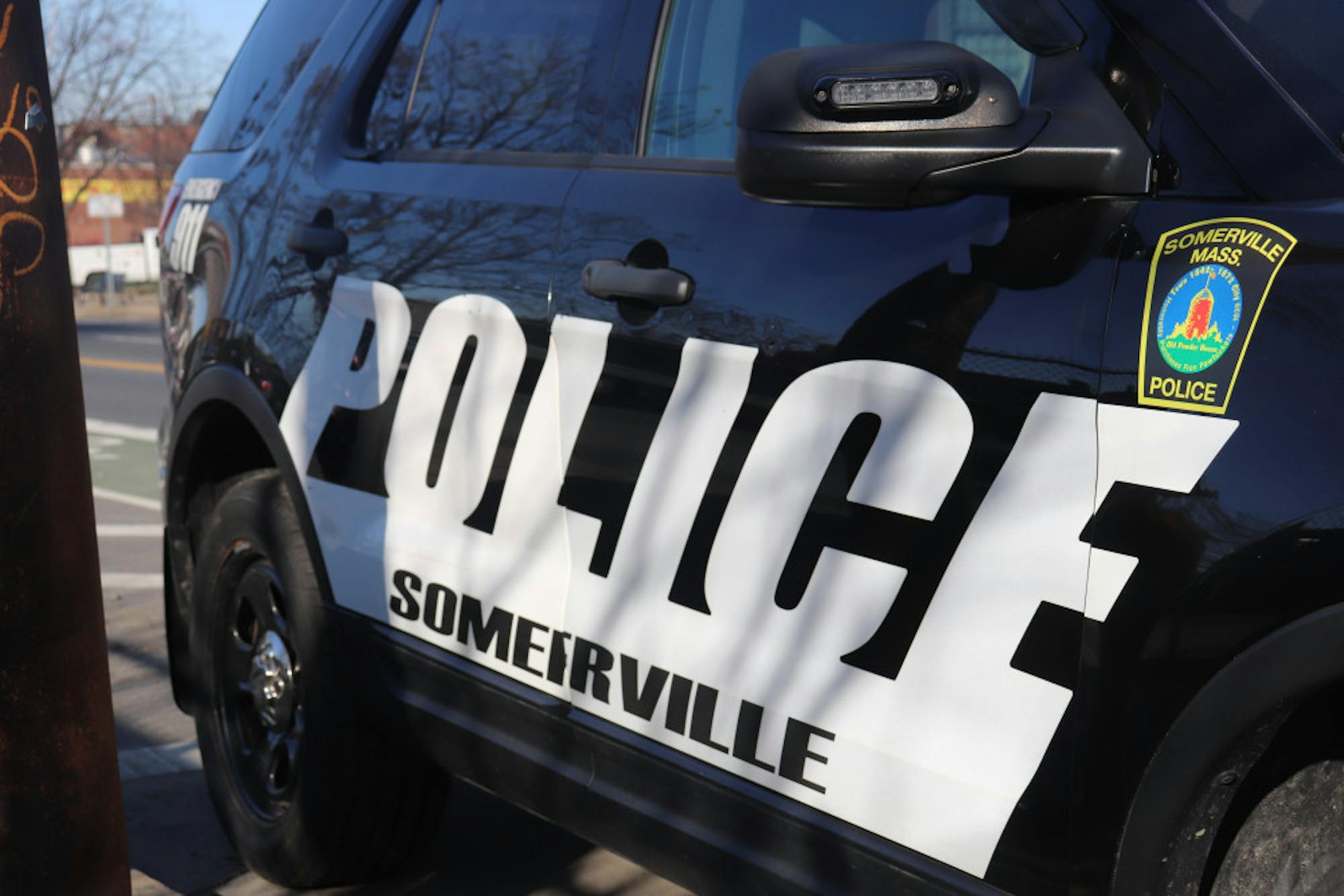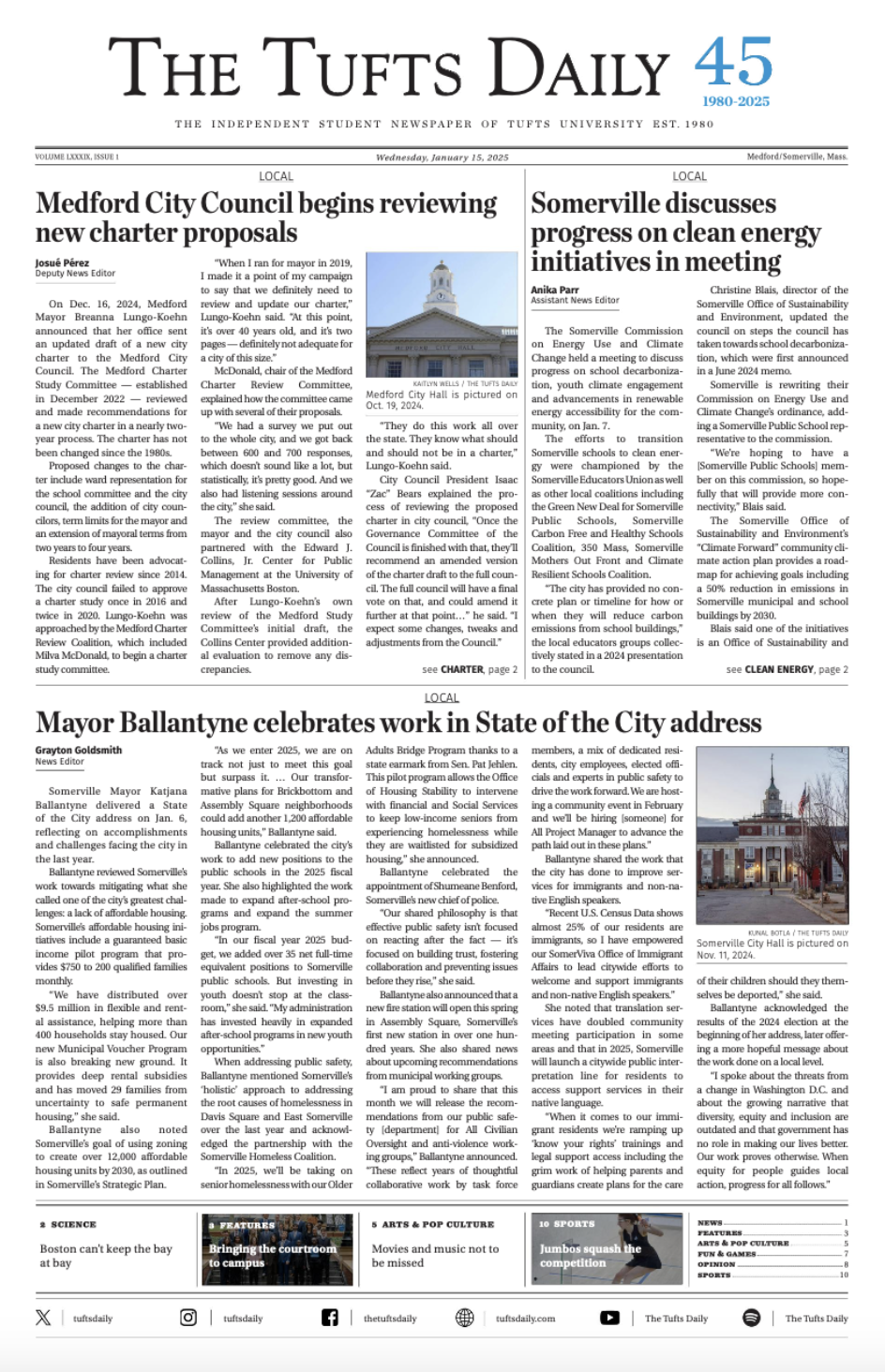Collective bargaining negotiations between Somerville Mayor Joe Curtatone’s administration and one of Somerville’s police unions remain deadlocked on the issue of body cameras, which the mayor supports and the union opposes.
Curtatone says that body-worn cameras for police are his “top priority” in the talks with the Somerville Police Employees Association (SPEA), which represents rank-and-file officers.
Somerville Chief of Police David Fallon, who was appointed to that position by the mayor and is not a member of a union, also strongly supports the implementation of body cameras, Meghann Ackerman, a spokesperson for the City of Somerville, confirmed.
However, the SPEA continues to oppose body-worn cameras, the mayor said.
Curtatone argued that body cameras are a win-win for the public and the police.
“It lends protection to the resident, the citizen, the person who’s being stopped or being questioned but also the police officer. I mean the camera is not going to lie, you’re going to hear and see everything that happened,” he said.
Curtatone believes that body cameras would build the trust and credibility of the police department with residents.
Leaders of the SPEA did not respond to repeated requests for comment.
The Somerville Police Department’s other union, the Somerville Police Superior Officer’s Association (SPSOA), which represents senior officers, also supports body cameras, according to an email from its president, Lt. Gerard Rymill, on Wednesday.
Ackerman, the Somerville spokesperson, says this represents a significant shift for SPSOA on the issue.
“The City is encouraged to hear that the Superior’s union, through Lt. Rymill, have indicated that they now support body-worn cameras, but the position the SPSOA takes today has not been the City’s experience with either SPSOA or SPEA,” she wrote in an email Thursday evening.
Lt. Rymill denied this, claiming that the SPSOA has always supported body cameras.
“In fact during our last round of negotiations with the City of Somerville it was the SPSOA that proposed body cameras and it was the City that refused,” he wrote.
However, Ackerman provided an arbitration decision signed in October of 2018 by city and union representatives that capped off that latest round of collective bargaining with the SPSOA. The decision showed that while the union had raised issues with pay scales and overtime, body cameras did not come up.
The push for body-worn cameras was thrust back into the spotlight after the Somerville police’s deployment to the Straight Pride Parade in August 2019 caused outcry and provoked calls for greater police accountability.
In response to accusations of heavy-handed policing at the parade, an internal investigation conducted by Chief Fallon in the fall cleared the officers involved of any potential department policy violations.
The investigation, lacking body camera footage, relied on a three-day search for publicly available videos of the incident and only found multiple clips from five locations, the report said.
Following the release of the report, Curtatone and Fallon said in a joint memo to the Somerville City Council council that body camera footage would provide a “critical source of information and transparency” in such investigations. The pair called on the City Council to pass a resolution in support of body-worn cameras.
At a community meeting on Jan. 22, Ward 6 City Councilor Lance Davis, who chairs the Public Health and Public Safety Committee, and Ward 2 City Councilor J.T. Scott, a critic of the police’s handling of the deployment, both confirmed they would support such a resolution.
This is not the first time Curtatone and Fallon have met police opposition to body-worn cameras.
As the Boston Herald reported at the time, Curtatone pushed hard for body-worn cameras during the 2015 round of contract negotiations with the SPEA. He told the Herald that he hoped to see implementation within a year.
In 2016, the negotiations with the SPEA came to an impasse on a number of issues, including body cameras. An arbitration panel voted 2-1 against the City’s demand for body cameras saying they were not a “prevailing working condition” in Massachusetts, according to the arbitration decision provided by the City of Somerville.
Since that time, hundreds of law enforcement agencies nationwide have implemented body-worn cameras since the highly publicized deaths of black youth by police officers, which include the shooting of Michael Brown in 2014 by a Ferguson, Mo. officer and the death of Freddie Gray in 2015 while in the custody of the Baltimore City Police Department.
Massachusetts, however, has lagged behind.
According to a report by Boston 25 News in July 2019, only eight departments in Massachusetts use body cameras, two of which were pilot programs.
Rick Thompson, the chief of police for one of those departments in Sherborn, Mass., explained that while the technology is not perfect, he does not see any major downsides.
Thompson told the Daily in an email that he believes body cameras have increased public trust in police and help in “separating facts from fiction” during investigations of the three to five complaints against officers received each year by his small department located southeast of Framingham.
Unlike in Somerville, Sherborn officers are broadly supportive of the program.
“Most Officers embrace accountability and embrace [body cameras] as a tool that demonstrates their willingness to be accountable to those we are responsible to protect in our role as guardians of our community,” Thompson wrote.
Despite political support for cameras in Somerville and elsewhere, the research on their effectiveness is mixed.
A report published by researchers at the Center for Evidence-Based Crime Policy at George Mason University last spring found that while cameras tend to reduce complaints against police, it is unclear whether they have any effect on use of force by officers.
The report also concluded that, although some police officers and prosecutors oppose body-worn cameras for the financial, logistical and supervisory burden they may impose, many have warmed to them on the grounds that they can be used to refute conduct complaints or to collect evidence.
Editor’s note: This article was updated on Jan. 6, 2020, to include further information provided by the City of Somerville concerning ongoing negotiations with the SPSOA as well as documents the City provided concerning the 2016 round of collective bargaining with the SPEA and the 2018 round of collective bargaining with the SPSOA.
Body cameras complicate Somerville's contract negotiations with police

A Somerville Police Department patrol car is pictured outside SPD headquarters on Jan. 31, 2020.





